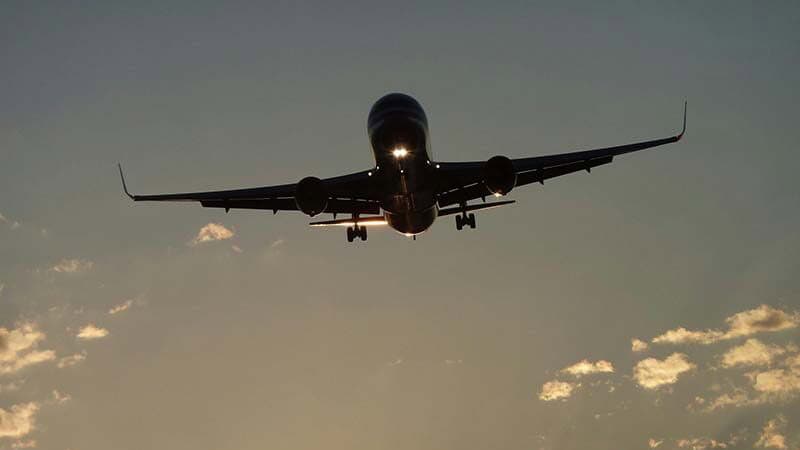Travel

TRAVEL INFORMATION AND RESOURCES
Collegiate Travel Planners (CTP) is the university’s designated travel partner. CTP provides:
- Negotiated rates on airfare, hotels, rental cars, and more for university business travel
- U-M and CTP discounts will be automatically applied when booking business travel with CTP, either through the online travel booking tool or via agent assistance
- Fully supported business travel
- 24/7 assistance to travelers through agents and the travel portal
- Easily apply unused tickets and e-credits to new bookings or reallocate them to alternate travelers within the university
- Book for up to 6 guests and/or employees at the same time
- A dedicated team of agents who specialize in booking group travel for groups of 10 or more
Booking Travel with Lightning/CTP
- Effective July 1, 2025 all employees are required to use CTP to book flights for university-related travel. This policy change will both streamline the travel booking process and ensure that U-M leverages the best options and rates negotiated for the university. (This requirement applies solely to booking flights and does not impact other travel arrangements, such as hotel accommodations or ground transportation.)
- The U-M Travel Portal and Travel Booking Tool—called Lightning—should be your go-to tool to book university business travel for yourself, other employees, or university guests. Note that unemployed students are considered guests. All post-docs and students need to obtain funding approval prior to booking travel.
- Access the systems via the Travel Booking tile in Wolverine Access.

- Link to CTP overview video
- Below are frequently used links to information for CTP and booking travel. Additional training materials, FAQs and videos can be found here.
- Setup my CTP profile and access the portal
- Add a travel arranger to my profile
- Book travel for myself or another employee
- Book travel for a guest
- Book travel for a group
- Book hotel & car reservation
CTP Resources
- CTP Travel Booking and Support
- Phone: (877) 804-3688International: (402) 252-4404
- Email: [email protected]
- CTP Group Travel Booking and Support
- Phone: (210) 530-0857International: (800) 810-2695Email: [email protected]
- Additional info: Group Travel Support
Receipts and Reconciliation
- Once travel is booked, you’ll receive an email with your itinerary from CTP. This receipt is needed to reconcile the charge against a short code.
- Employees can directly email any receipt to their Emburse (previously Chrome River) list of receipts by emailing it to: [email protected]
- Faculty, staff and employed students should then submit an expense report in Emburse to reconcile the charges within 45 days of purchase.
- Faculty, staff and employed students should initiate the process of having their expense report created by submitting a request in CEE’s reimbursement system.
- Note that guest travel (including non-employed students) will need to be reconciled by whoever booked the travel.
U-M Travel Policy and Allowable Expenses
The Travel and Business Hosting Expense Policy is published in SPG 507.10-1.
For a summary of allowable expenses, refer to the Summary of Allowable and Unallowable Expenses.
Airfare
The university will pay for the cost of standard coach airfare. Travelers should always select the lowest price airfare within the bounds of the most logical schedule. For full U-M guidelines and limitations, please see SPG 507.10-1.
The university has negotiated discounted rates with multiple airlines. There are several perks available when booking using these contracts. Visit the Delta, United, and Southwest supplier pages to learn more about perks, including how to upgrade to preferred seating.
Lodging
The university will reimburse lodging expenses at a reasonable standard room rate. When the hotel is at a conference or convention site, reimbursement will be limited to the conference rate, if available.
Car Rental
It is strongly recommended that employees use the university’s preferred car rental suppliers, National Car Rental and Enterprise Rent-A-Car. This ensures that appropriate insurance is included and discounted university rates are applied.
Risk Management advises that travelers decline all collision insurance for vehicle rentals originating in the U.S. as the university self-insures for commercial rental vehicle loss/damage. When traveling outside the U.S. it is recommended that travelers accept collision insurance. See the Risk Management website for more information on insurance coverage.
Personal Car Mileage or Car Rental?
Use the Trip Optimizer tool to receive a cost estimate for claiming mileage reimbursement vs. renting a car.
International Travel
The International Travel Policy (which includes U.S. territories) is published in SPG 601.31.
NOTE: Booking international travel through the university’s designated travel partner does not automatically register your international U-M Related Travel in the U-M Travel Registry. You must register your international travel separately.
Travel Meals/Per Diem
U-M adheres to U.S. General Services Administration (GSA) per diem policy for employee travel meals and incidental expenses. The per diem rates are set by the GSA for travel to domestic CONUS (continental US) and foreign/OCONUS destinations (foreign and non-continental US). Travelers are allowed 75 percent of the per diem amount on the first and last days of travel. University employees on business travel should pay for their own individual meals and incidentals out of pocket while traveling. Per diem can be claimed via a Chrome River expense report after their trip and is calculated based on the travel destination. Receipts are not required. For full U-M guidelines, please see SPG 507.10-1
(Looking for the Hosting policy? See Expense Reporting.)
Non-employee Travel
Whenever possible, business travel for non-employees (students/guests) should be paid for with a university PCard and should be arranged using the university’s designated travel partner.
Non-employee travel meals are reimbursable for the actual cost incurred provided the rate does not exceed current maximums ($30 breakfast, $30 lunch, $70 dinner). In lieu of reimbursing actuals, units may also pay non-employees at a set rate, provided that the rate does not exceed the GSA per diem rate. See Expense Reporting to learn more about processing these payments.